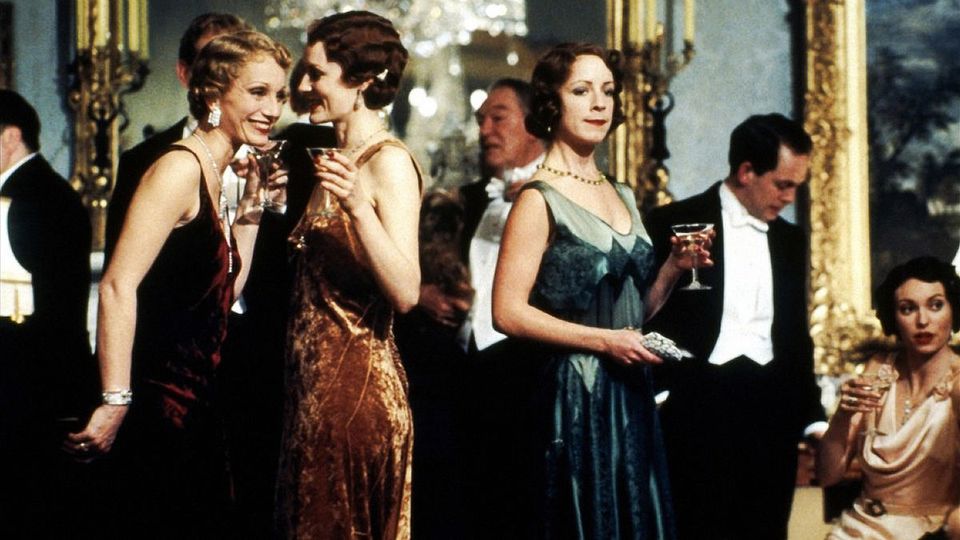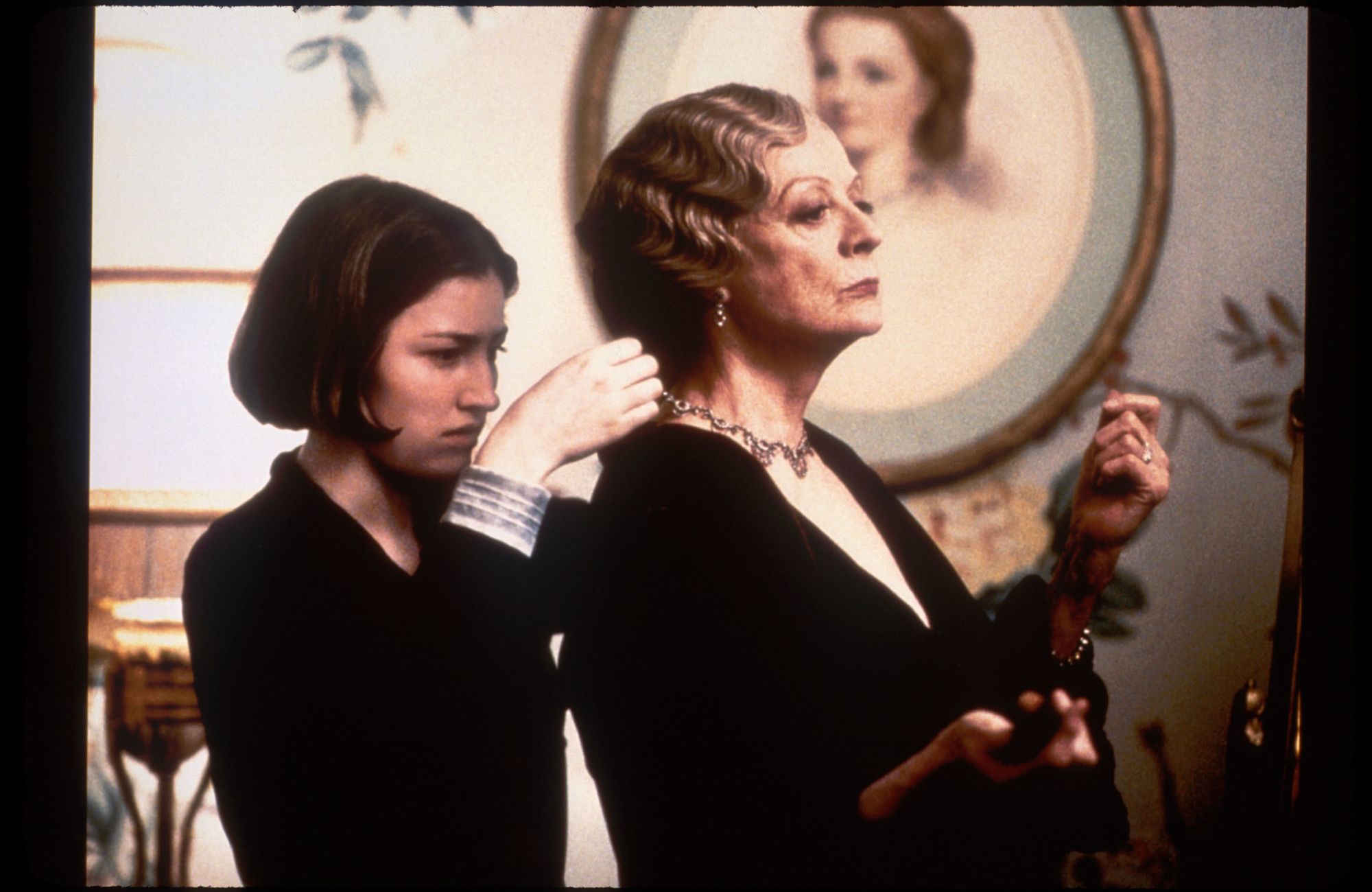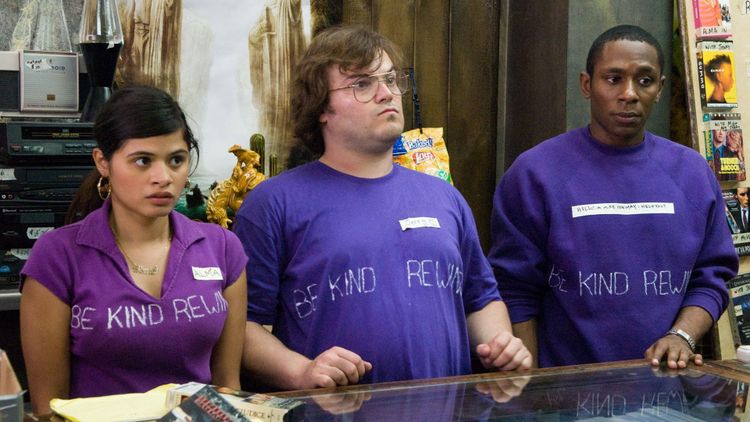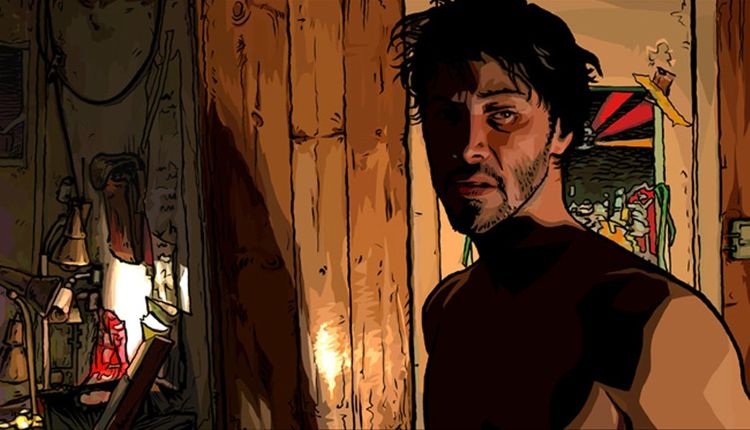Adventures in DVD #4: Gosford Park

A strange thing happened on the set of the original Planet of the Apes movie back in the 1960s. During downtime—when the cameras were switched off and the cast not required to stay in character—those in ape make-up convened with other actors in ape make-up. In the canteen, the chimpanzees ate with the chimpanzees, the gorillas dined with the gorillas, the orangutans stuck with the orangutans, and the humans, well, that’s right. It could have been a weird social engineering experiment posing as a movie shoot.
I wonder if during the filming of Gosford Park the actors playing members of the upper class stuck together and ditto for the servants. Would Michael Gambon instinctively stay clear of Derek Jacobi, an actor of similar prestige but cast as his on-screen valet? Could Maggie Smith and Kelly Macdonald look at each other as colleagues after acting out a scene that saw Smith’s Dowager Countess talk down to Macdonald’s lady’s maid?
Set in 1932, the last days of what some (not me, obviously) might call the golden age of the British aristocracy, Gosford Park invites contemplation on the nature of the societal ladder. The iron curtain between masters and servants is set by two things: wealth and the eminence of a family name gained through accident of birth. These are man-made concepts, no less artificial than the ape make-up applied to Roddy McDowell and Kim Hunter. I’d never claim any depiction of this world is superior to Upstairs Downstairs, the film’s clearest predecessor and, for me, the greatest TV drama series Britain ever produced (do yourself a favor and get on that). But as a standalone piece, Gosford Park is one of the greatest meditations on the British class system ever made.
Strip all that away, though, and Gosford Park is simply a delight to watch. A cozy crime murder mystery, it’s perfect rainy Sunday fare. That the film opens with the pitter-patter of raindrops couldn’t be more appropriate as Macdonald’s Mary is forced to wait in a downpour for Smith’s character Constance, the Dowager Countess of Trentham, to leisurely move from her house to her car with no thought of the help’s wellbeing.
It is directed by Robert Altman, a native of Kansas City, Missouri and descendent of the Mayflower. Gosford Park is the result of Hollywood player Bob Balaban’s hopes that the duo could collaborate. It was Altman who suggested an Agatha Christie-style everyone’s-a-suspect country house murder mystery that examined how masters and their servants co-existed. With a background of nobility, British actor and writer Julian Fellowes was recruited to write the screenplay. Fellowes had never actually penned a movie before, but his dialogue sizzles on the cast’s thespian tongues.
Gosford Park takes place in the vast surroundings of the titular estate, the countryside home of Sir William McCordle (Gambon), his wife Lady Sylvia (Kristen Scott Thomas), and their daughter Isobel (Camilla Rutherford), descended upon by various members of the aristocracy for a shooting weekend. As such, a huge injection of the guests’ servants enter the hive world of below stairs, overseen by the doleful Mrs. Wilson (played immaculately by Helen Mirren), who insists on old customs, such as servants being referred to within the estate not by their own names, but the names of their masters. So Clive Owen’s Mr. Parks becomes Mr. Stockbridge, the name of the lord (played by Charles Dance) who employs him as a valet.
This is just one small part of the ritual indignity that’s part of the servant life, tolerable because to lose your job in Britain pre-welfare state (which, in the early 1930s, was in the middle of being constructed) could mean descending into Dickensian squalor. We learn that Mrs. Wilson and the cook Mrs. Croft (Eileen Atkins) remain employed by Sir William despite him imposing the most despicable cruelty upon them many years earlier.

Yet the divisions between the above stairs haves and below stairs have-nots are thinner than they appear. As the nobles enter the house, it’s clear that it’s not just the servants under his employment who rely on Sir William for their well-being. Lady Sylvia and her sister Louisa (Geraldine Somerville) cut cards to decide which of them would marry Sir William, who earned his fortune in business rather than inheritance, so they could sustain the supposedly great house of their father, an earl. There is Lt. Commander Anthony Meredith (Tom Hollander), married to Lady Sylvia’s youngest sister Lavinia (Natasha Wightman), on the brink of financial ruin after Sir William pulls out of a business deal. Even Constance is facing the threat of Sir William halting the allowance on which she is dependent.
These anxieties among guests give Gosford Park a delicious tension, even more so than the impending murder, which is mischievously hinted at throughout with lingering shots on bottles of poison and discussions of missing kitchen knives—like most Christie murder capers screened on ITV, we know why we’re here (in case you’ve not seen Gosford Park, I’ll say no more about the mystery aspect of the movie.) There’s hardly a couple present who are happy together, least of all Sir William and Lady Sylvia, who routinely have affairs, among them Sir William’s romance with head housemaid Elsie (Emily Watson), who carries genuine affection for the grumpy old boy twice her age. So while the estate is immense, the group scenes feel tight and intimate, everyone unable to hide their problems under their finery. And in the middle of it all is Balaban himself as a Hollywood producer tagging along with matinee idol Ivor Novello, the only character based on a real person, played here by Jeremy Northam, star of The Net (obviously). “How do you manage to put up with these people?” asks Balaban’s Morris Weissman, referring to the upper class. “Well, you forget,” replies Novello, “I make my living impersonating them.”
Fellows would win an Oscar for his screenplay and parlay the success of Gosford Park into the series Downton Abbey, originally intended to be a spinoff of the movie. I’m a Downton fan, but it lacks the same gentle charisma or storytelling nuance. Whereas Gosford Park— and, even more so, Upstairs Downstairs—depict the decline of the aristocracy with almost imperceptible subtlety, Downton sledgehammers the viewer over the head with characters constantly talking about how times are changing. The score to Downton asks us to marvel at the gross opulence of the setting; the quieter music in Gosford Park has an almost sardonic quality, reflecting the inherent absurdity of the setting.
As the weekend unfolds, Weissman drinks in the drama, seeing it as inspiration for his next film, bringing an extra ripple of self-awareness to Gosford Park. Stephen Fry shows up in the role of a bumbling detective that everyone who sees the movie remembers. But there are also moments of crushing sadness. Altman’s greatest success here is to keep a film with so much tragedy and comedy feel so lightly toned. Perhaps that reflects the obvious truth that masters and servants is an extreme situation that nonetheless managed to operate with fluency for generations. Altman sees the ridiculousness in the class system in a way that Fellowes—who has since been handed a peerage and introduced in the House of Lords, where he sits on the Tory Benches—does not.
Then there’s how he shoots the movie: with two cameras, both moving perpetually in opposite directions. I suspect the techniques adds life to the group scenes, with actors unable to simply fade into the background. It was one of the most impressive casts ever assembled for a British movie; Altman was going to put them to work. To watch him reign in the on-screen talent is to watch a war master wield a sword of immense power.
Gosford Park captures an antiquated world, but in the end, it looks forward. When Elsie climbs into Novello’s car in the final seconds to head to London, it hints at a better future, clear of the kind of dependency on the upper class that Mrs. Wilson and Mrs. Croft endured. Perhaps the aristocracy was crumbing, but to paraphrase Mr. Hudson, the butler from Upstairs Downstairs, from memory: “We all serve a master.”
Adventures in DVD is my series on every great movie of the 2000s. If you’d like access to all past and future posts, and to support what I do here, please consider subscribing.


